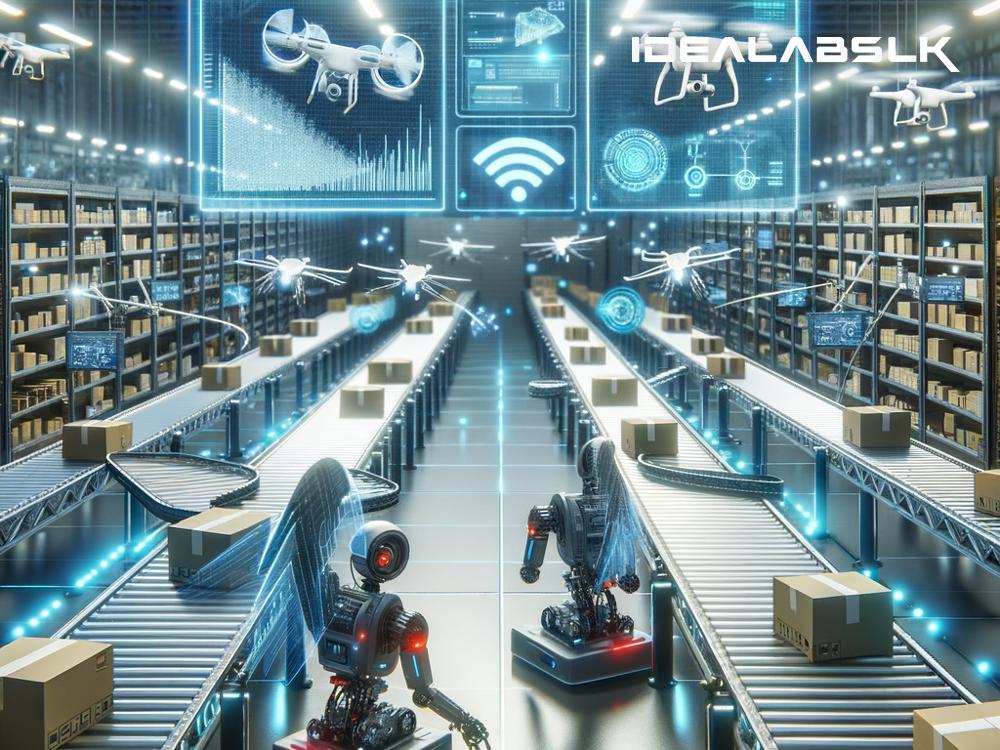The Future of Automation in Supply Chain Logistics: A Simplified Exploration
In today's rapidly evolving world, where the click of a button can get you anything from a meal delivered to your doorstep to a wardrobe refresh, it's no surprise that behind the scenes, the logistics sector is undergoing a transformation. At the heart of this transformation is automation - a word that's buzzing across industries for its potential to change the way operations are conducted. When we talk about the future of automation in supply chain logistics, we're envisioning a world where efficiency, speed, and accuracy are not just goals, but standards. Let's dive into this exciting future, simplifying some of the complex ideas that make up automated logistics.
The Present Landscape
Before we jet off into the future, let’s ground ourselves in the present. Currently, logistics involves a lot of moving parts - from warehousing and inventory management to transportation and delivery. Humans, alongside some level of mechanization, handle these parts. However, manual processes can be slow and prone to errors. Enter automation, aimed at refining these processes, thus ensuring quicker and more reliable operations.
The Role of Automation
Imagine a world where robots and machines do the heavy lifting (literally and figuratively), where systems predict the demand for products even before you realize you need them, and where parcels find their way to your home without a human ever needing to read a delivery label. This isn't a snippet from a sci-fi novel; it's the near future of supply chain logistics, powered by automation.
Key Areas of Automation in Logistics
-
Robotics in Warehouses: Robots are already making headlines for their ability to pick and pack items in warehouses. They can navigate vast warehouses faster and more accurately than humans, work 24/7 without breaks, and are not susceptible to workplace injuries.
-
Autonomous Vehicles: The idea of self-driving trucks and drones delivering packages might seem futuristic, but we're not far off. This technology promises to reduce delivery times drastically and address the driver shortage issue in the logistics sector.
-
Artificial Intelligence (AI) and Machine Learning: AI and machine learning can predict demand, manage inventory, and even optimize delivery routes by analyzing vast amounts of data. This means businesses can reduce waste, save money, and deliver products faster than ever before.
-
Blockchain for Transparency: Blockchain technology can provide an immutable ledger, perfect for tracking products from manufacture to delivery. This not just ensures the authenticity of products but also significantly enhances transparency and trust in the supply chain.
The Benefits of Automated Logistics
Efficiency and Speed: Automation can increase the speed of various logistics operations, meaning products get from point A to point B much faster.
Accuracy and Reduction of Errors: Machines, guided by sophisticated algorithms, make fewer errors in picking, packing, and shipping products than humans.
Cost Reduction: Over time, investing in automation technology can save money by reducing labor costs and minimizing losses due to errors.
Enhanced Customer Satisfaction: Faster, more accurate deliveries and fewer errors mean happier customers, which is crucial in today's competitive market.
The Challenges Ahead
Despite its many benefits, the path to a fully automated supply chain isn't without its obstacles. The initial investment in automation technology can be high, and there's also a need to reskill or upskill workers to operate and maintain these new systems. Additionally, concerns around job displacements need to be addressed compassionately and creatively.
The Human Element
As we embrace this automated future, it's critical to remember the value of human insight and oversight. Automation can handle repetitive tasks and crunch numbers with unmatched speed, but humans are needed for their critical thinking, decision-making, and ability to handle unexpected challenges. The future of logistics isn't about replacing humans but about augmenting human abilities with technological advancements.
Looking Ahead
The future of automation in supply chain logistics is bright. It promises a world where efficiency, speed, and accuracy are the norms, bringing about not just economic benefits but also potentially transforming how we experience shopping and consumption. As we continue to navigate this future, the key will be to balance technological advancements with human values - ensuring that as we speed up logistics, we also keep an eye on sustainability, ethical implications, and workforce development.
In conclusion, automation is not just reshaping supply chain logistics; it's setting the stage for a more connected, efficient, and smart world. As we move forward, embracing this change will be crucial for businesses and consumers alike, ensuring that the future of logistics is not only automated but also inclusive and progressive.

